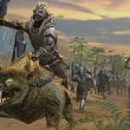Personality disorders are considered mental illness, but in fact they are far from true diseases. Rather, it is excessively reinforced features of character. They can be the most different. Read more about Personality Disorders Read the article.
Content
Briefly about personality disorders
Personal disorders - a very common type of diseases requiring psychotherapeutic treatment. They are «grow» On the soil of a certain personality structure obtained at birth. No «Bad» Personal types - there are successful or unsuccessful conditions for their development, leading to harmony and happiness, from one end of the scale of the capabilities of this person, or to the tragedy or mental illness, from the other end. Ordinary is some intermediate state, but if it is inclined to «bad» the end of the scale, so that your personal features or personal features of your loved one cause severe concern or harm you or others - this is a reason to appeal to the doctor. And the doctor's case is to put the correct diagnosis, and if it is, really, a personal disorder, classify it in order to treat effective treatment.
There are several options for classifying personality disorders. Below is one of them. It must be remembered that it is often in people there are features of several personality disorders. This is also a reason to appeal to the doctor.
Types of personality disorders
 People with avoiding type of personality disorder would like to get close to others, but they are afraid to be rejected. Their idea of themselves: an unsuitable, incompetent. «I am bad, worthless, unattractive». «I can't tolerate unpleasant feelings», The idea of other potentially critical, uninterested degrading. Their main strategy: avoid situations in which they can evaluate them. As for emotional manifestations, the combination of anxiety (about a possible assessment) with sadness is most often occurring here (the result of the avoidance: no close relationship and success).
People with avoiding type of personality disorder would like to get close to others, but they are afraid to be rejected. Their idea of themselves: an unsuitable, incompetent. «I am bad, worthless, unattractive». «I can't tolerate unpleasant feelings», The idea of other potentially critical, uninterested degrading. Their main strategy: avoid situations in which they can evaluate them. As for emotional manifestations, the combination of anxiety (about a possible assessment) with sadness is most often occurring here (the result of the avoidance: no close relationship and success).
People with the dependent type of personality disorder is needed «support»: Without it, they feel weak and helpless. Thus, the idea of itself is the same as «Avoiding» (weak, incompetent), but ideas about other other - dependent identity is focused on «Guardian»: caring, approving, competent. With a suitable guardian, a dependent personality «bloom» and capable of acting very effectively. Strategy, of course, find a guardian and tie him to himself. Emotions: Anxiety due to a possible break from «acting» guardian who can bother this role.
A person with a passive-aggressive personality disorder requires «freedom», But it does not cope with it; Complaints on «power», but it craves her approval. Understanding of yourself: self-sufficient, but vulnerable to external influence. On the one side «Unbearable to be controlled», and on the other - «I need the power to defend, approved and supported me». The idea of others: annoying, demanding and - at the same time - capable of care and acceptance. Inside itself he contradicts the other. For these people, a discreet anger is characterized with passive submission «authorities» and anxiety in anticipation of response repression.
Obsessive-compulsive personality disorder. The name comes from the words obsession (obsession, obsessing thought) and compulsion (coercion). Representative of this area - a serious person for whom words «the control» and «should» Experiencing everyone else. Understanding about yourself: responsible for yourself and for others. But for this «strong» Installation often hides the fear of incompetence and helplessness, and the only antidote from this fear is strictly following the column of rules developed for all occasions. All other at the same time he considers absolutely irresponsible. Its main strategy: maximum control over itself (development of rules, self-criticism) and others (the requirement of compliance with the rules, and disapproval / punishment in case of non-fulfillment). He is constantly regrets the imperfection of human nature and is disappointed in the low efficiency of correctional measures.
People with a paranoid disorder of personality, unlike true paranoids, do not suffer a mania of persecution, until they do not trust others, but do it with a scope. They consider themselves virtuous, but sure with them «Poor treat». Others they do not trust, constantly afraid of deception.
The personality with the antisocial disorder itself establishes «rules of the game». He (she) is a lone wolf (or a wolf), and quite satisfied with it. Thinks alone, independent, strong. Others in his eyes stand or much lower it (contempt) or on the same level. Behavior in relation to other may vary from ingenious manipulation and fraud to direct robbery and violence. The most frequent emotion: anger about the fact that others have what he / she is undoubtedly much more deserves.
People with a narcissistic personality disorder are also docked on themselves. For «Narcissa», Like for «wolf» Also not written rules, but they relate to people much softer, since others are the mirror, capable of reflecting all the splendor Narcissus. Understanding about yourself: I am special and unique, I am above the generally accepted rules. But in the depths they doubt their magnificence, and therefore it is all the time confirming the admiration of others. Others for him nothing more than mirror. His strategy is to make everyone admire; its main emotion is anger if they do not admire. No admiration can be dedicated by Narcissa to depression.
Many great people suffered from a schizoid personality disorder: to some limits, removal and closure contribute to creativity. This is not autistic and not schizophrenia. It's all about the dosage of loneliness and in the internal wealth of the person being removing. A person with a schizoid personality disorder considers himself a self-sufficient single, others - obsessive, limiting. He tries to hold on the distance, since the attempts of others threatens the destruction. Schizoids are not inclined to let in their inner world of others, so it seems that they have no strong feelings; For all who «let in» obvious sadness as a consequence of isolation.
In people with a historic (hysterical) personality disorder, the main emotion is joy, because they consider themselves charming, impressionable and noteworthy, and others, respectively, impressive, sensitive, admiring. They are a little bit like Narcissus, but not cold to others: they enter with them warm, although often a short, relationship. Their strategy: be in the center of attention, give and receive joy. If this strategy is not implemented for objective reasons, then in any way (up to hysterics) to achieve the desired, affecting feelings. And feelings - Mature tender and difficult to manage. Therefore, the accompanying emotion in the historium-disturbed personalities is a casual feeling of anxiety, which is replaced by anger and sadness when their plans immediately make themselves and all of humanity.









